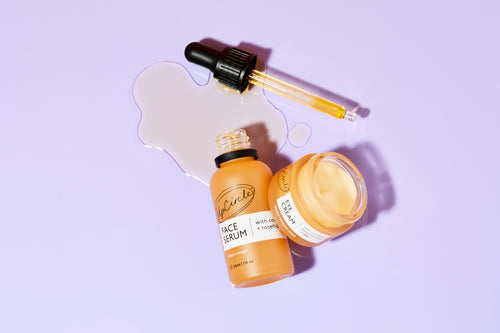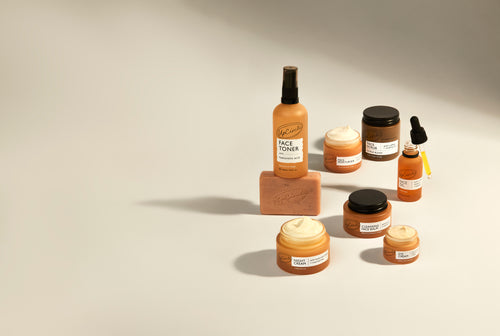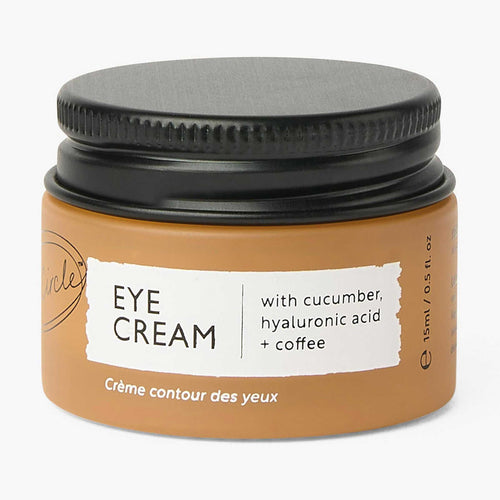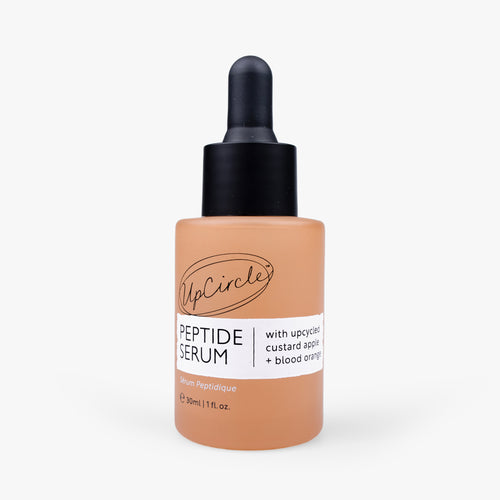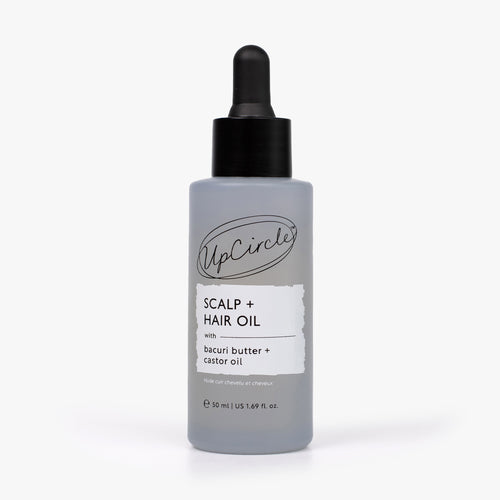Achieving radiant, glowing skin can sometimes seem like an almighty challenge. Plus, acne and other skin conditions are becoming increasingly common. With so many different brands, ingredients, and product types, it can all feel very overwhelming. That’s why, here at UpCircle, we like to focus on natural, simple skincare.
We are generally all familiar with well-known nasty ingredients like parabens. Yet there are some lesser-known ingredients which can have a negative effect on our skin. One such ingredient is water. Yes, really! Let us explain...
Is water good for your skin?
Drinking water is undoubtedly good for your skin. It keeps you hydrated and helps your skin stay refreshed, replenished, and even reduces the signs of aging. But the issue comes primarily from tap water, especially London tap water.
There is a lot of evidence that suggests London tap water is high in oestrogen. This is due to the fact that many people in the capital take the contraceptive pill and the hormones do not get filtered out of the water.
Excess oestrogen causes our individual internal hormone levels to become out of balance. It has a big impact on everything, including our skin, female fertility (PCOS is an oestrogen dominant condition), and male fertility. An imbalance of hormones is also one of the leading causes of acne.
Oestrogen aside, water can be very drying on your skin. This is especially the case in hard water areas. Ever wondered why your skin feels dry, tight, and dehydrated after a hot shower? That would be the drying effects of hard water on your skin.
How to protect your skin from hard water
1. Get a water filter
There are lots of water filters on the market, so do some research as to which type works best for you. Be cautious to avoid one that strips out all the good minerals too. A water filter should help reduce the oestrogen load on your body. Remember that bath and shower water counts too! 60% of what we put on our body goes into our bloodstream, so the more you can filter the better. If you can afford to do both, we would recommend it (especially if you have a lot of baths).
2. Remove endocrine disruptors from your skincare
Lots of conventional skincare and household products are packed full of endocrine disruptors. Endocrine disruptors are chemicals that can interfere with your hormone system. Do your research and know what to get rid of. Look for ingredients such as:
- Phthalates (on the label as vinyl, PVC, phthalates, DEHP, DBP, fragrance, parfum)
- Bisphenol (BPA)
- Perfluorinated chemicals (on the label as PFOA, PFOS, “-fluoro”, “-perfluoro”)
- Triclosan (on the label triclosan, “antibacterial”)
- Parabens (on the label as methylparaben, propylparaben, butylparapen and ethylparaben).
Skincare products such as standard shampoo, toothpaste, and make-up are common culprits. Whilst in the kitchen the worst offenders are items like non-stick cookware, plastic containers, and cling film (the chemicals can leach into your food).
3. Be wary of tinned foods
Many brands still use bisphenol-A (BPA) in their canned goods, even though it's a known endocrine disruptor. BPA has been linked to a number of health concerns, particularly in pregnant women, foetuses and young children, but also in adults. Look for BPA-free cans.
4. Foods to avoid
As much as possible, buy and eat organic produce and free-range, organic meats to reduce your exposure to added hormones, pesticides, and fertilisers. Also avoid milk and other dairy products that contain the genetically engineered recombinant bovine growth hormone (rBGH or rBST).
5. Foods to eat
Cruciferous vegetables are good at reducing oestrogen dominance – think broccoli, cabbage, kale, brussel sprouts, and cauliflower. Sesame seeds and flaxseeds also have oestrogen binding ligans, which help to remove excess oestrogen from your body.
6. Skin exfoliation
Skin exfoliation helps stimulate circulation and unblock pores, which helps clear out acne. It also stimulates the body’s lymphatic systems, which speeds up detoxification. Our scrubs are free from artificial ingredients, hormones, microbeads and chemicals, making them a perfect addition to your natural skincare routine!
To be clear, there’s no need to start panicking and never shower again. It’s more about limiting your exposure to oestrogen infused tap water and drying hard water. By taking the above steps, you can avoid any potentially negative side effects of water on your skin.

